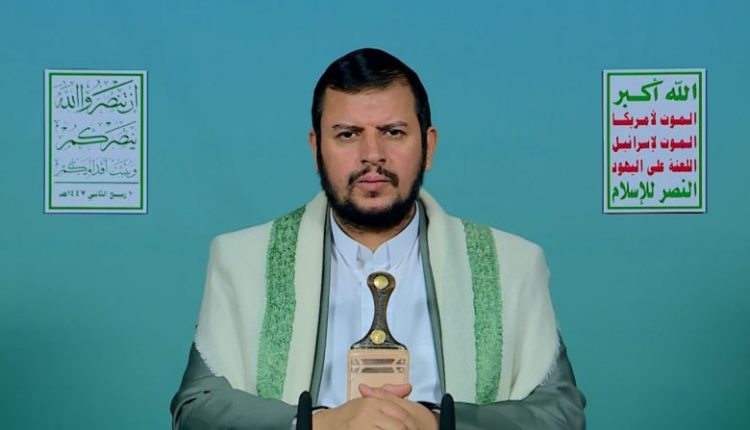Revolution Leader: The Colombian President’s Stance and Solidarity Flotillas Confront Arab Inaction and Expose the Falsehood of the U.S.–Israeli Aggression
Revolution Leader Sayyed Abdul-Malik Badr al-Din al-Houthi affirmed that one of the most honorable international positions in confronting Israeli crimes was that of the Colombian president, who outpaced many Arab and Muslim leaders by calling for the formation of an army to liberate Palestine and severing all relations with the enemy entity. He expressed his wish that the leaders of the Muslim nation would rise to such a stance, driven by conscience and humanity.
Sayyed al-Houthi added that the real problem in the Arab world lies in the absence of human conscience and the lack of religious, national, and moral motivation, stressing that there is a dreadful state of complacency in the face of aggression amounting to genocide and terror against the Palestinian people. In contrast, he praised the solidarity of peoples and activists who refused to stand idly by, citing the actions of port workers and labor unions in Italy who succeeded in blocking a fuel shipment to the enemy—while ships from some Arab and Islamic states continue to dock weekly at the enemy’s ports.
He also highlighted other courageous decisions on the international scene, pointing to Slovenia’s announcement of a ban on the criminal Netanyahu’s entry into its territory, describing it as an example of global solidarity and engagement with the suffering of Palestinians.
Sayyed al-Houthi considered the Resilience Fleet one of the most prominent solidarity symbols that drew the world’s attention to Gaza’s suffering. He confirmed that repeated attempts to break the siege—now numbering the thirty-eighth solidarity mission by free activists—send a clear message that peoples reject the crime of starvation and blockade.
He explained that solidarity activists move despite great risks to expose the crime and break the siege, noting that the Israeli enemy has habitually targeted solidarity flotillas, arresting activists and confiscating aid. Yet, each time, it fails before the determination of the activists and their ability to draw international attention to the suffering of the Palestinian people and to expose the deceptive tactics of the occupation.
The Leader called for more popular and practical solidarity with Gaza, affirming that what free peoples have done—from dockworkers to governmental decisions and even the Resilience Fleet—forms a moral and political argument against destruction and normalization with the crime. He stressed that the continuation of such actions is the only way to compel regimes to take real positions rather than limiting themselves to slogans.
Sayyed al-Houthi concluded by affirming that steadfastness and global solidarity initiatives represent a beacon of hope for the Palestinian people, and that the continuation of these campaigns is the path to exposing the falsehood of the U.S.–Israeli alliance and thwarting policies of dispossession and displacement targeting Palestinian rights.

